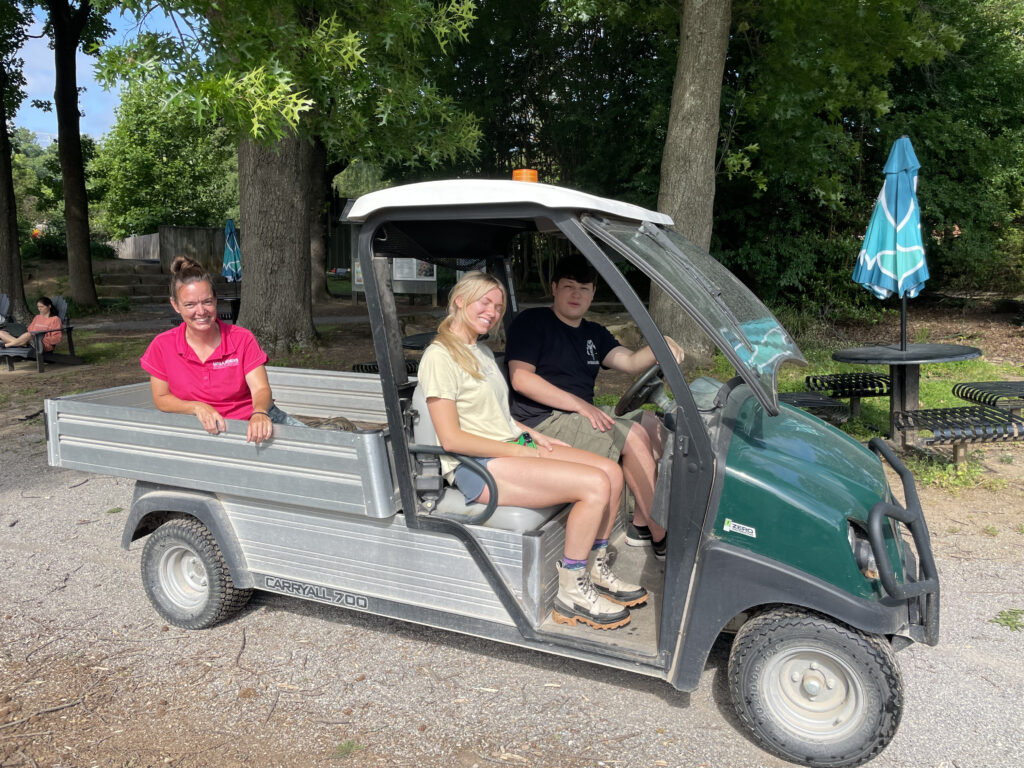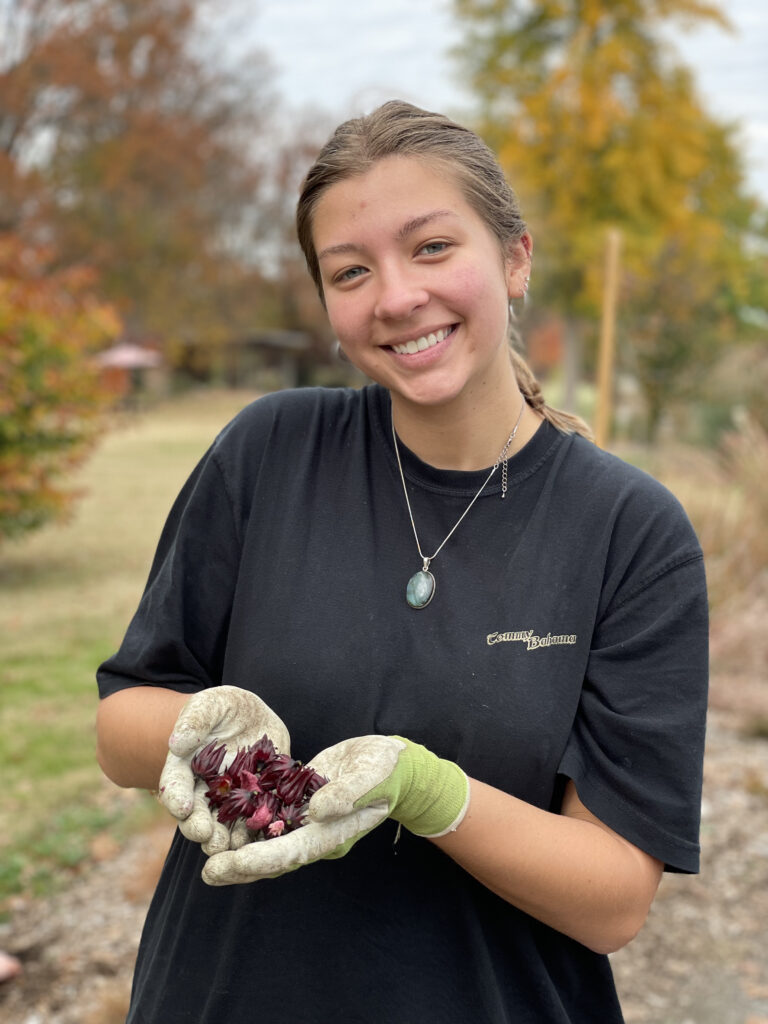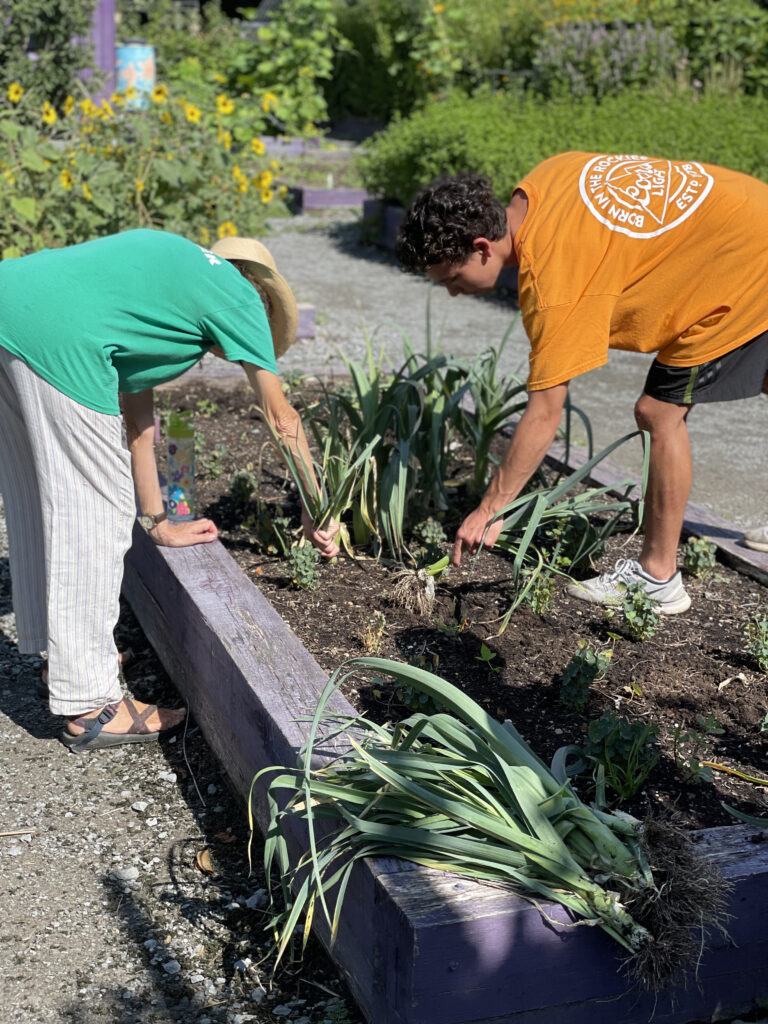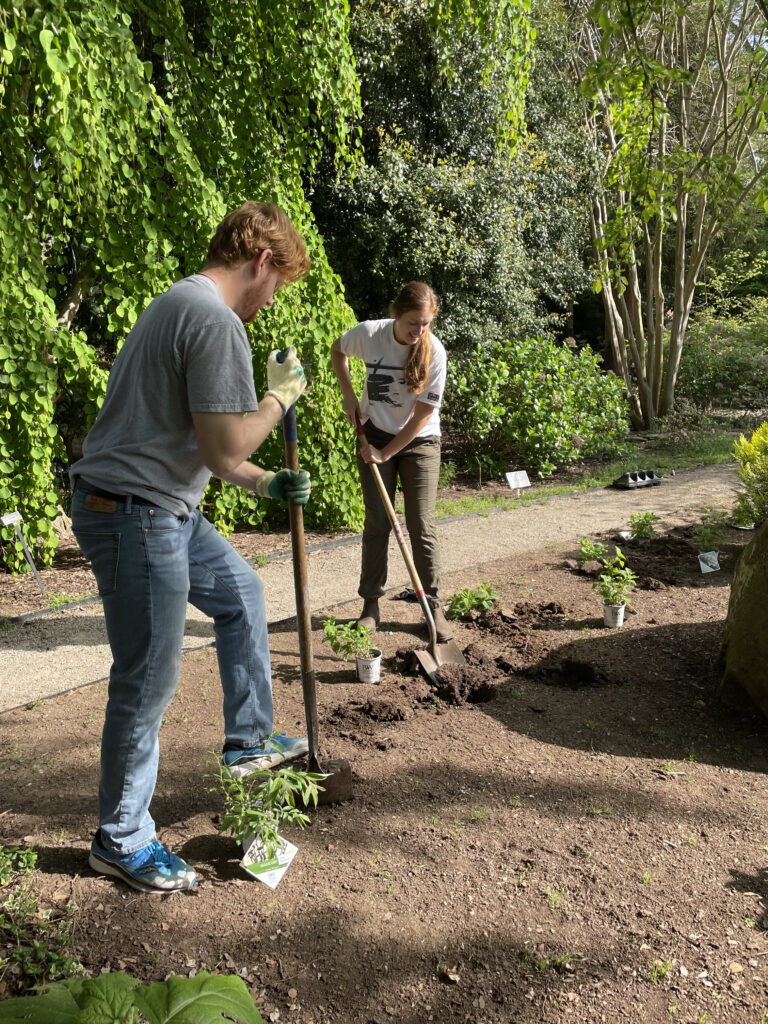Students can become involved and/or work in the UT Gardens, Knoxville in a variety of ways. Whether paid or unpaid, for course credit or not, all are encouraged and appreciated. Although preference is given to public horticulture, turfgrass, horticulture, and landscape design students, opportunities in the UT Gardens are not limited to plant sciences majors. All students, regardless of course of study, are invited to become involved in the UT Gardens. Previous students worker majors include environmental science, ecology, entomology and plant pathology, architecture, music, and Portuguese!
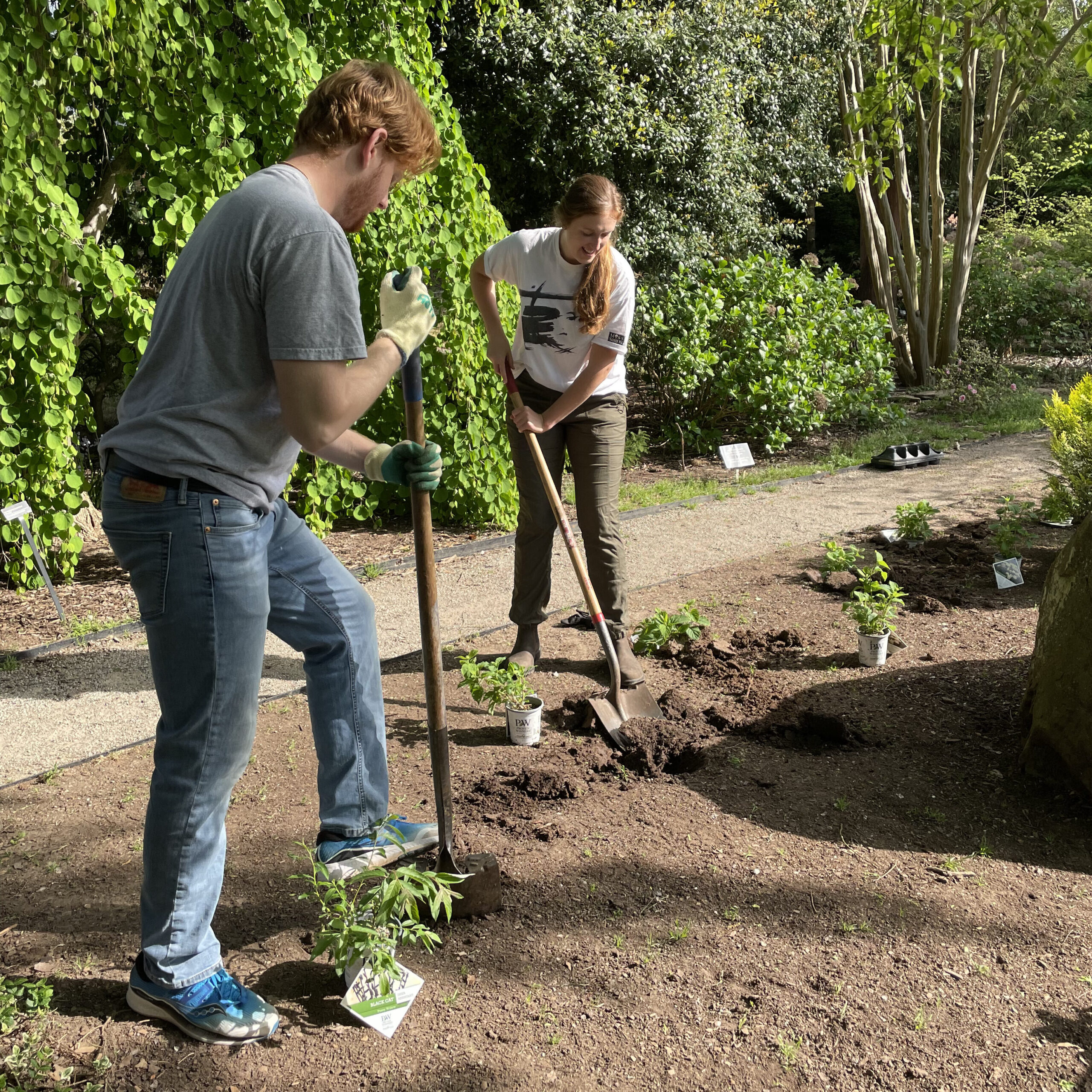
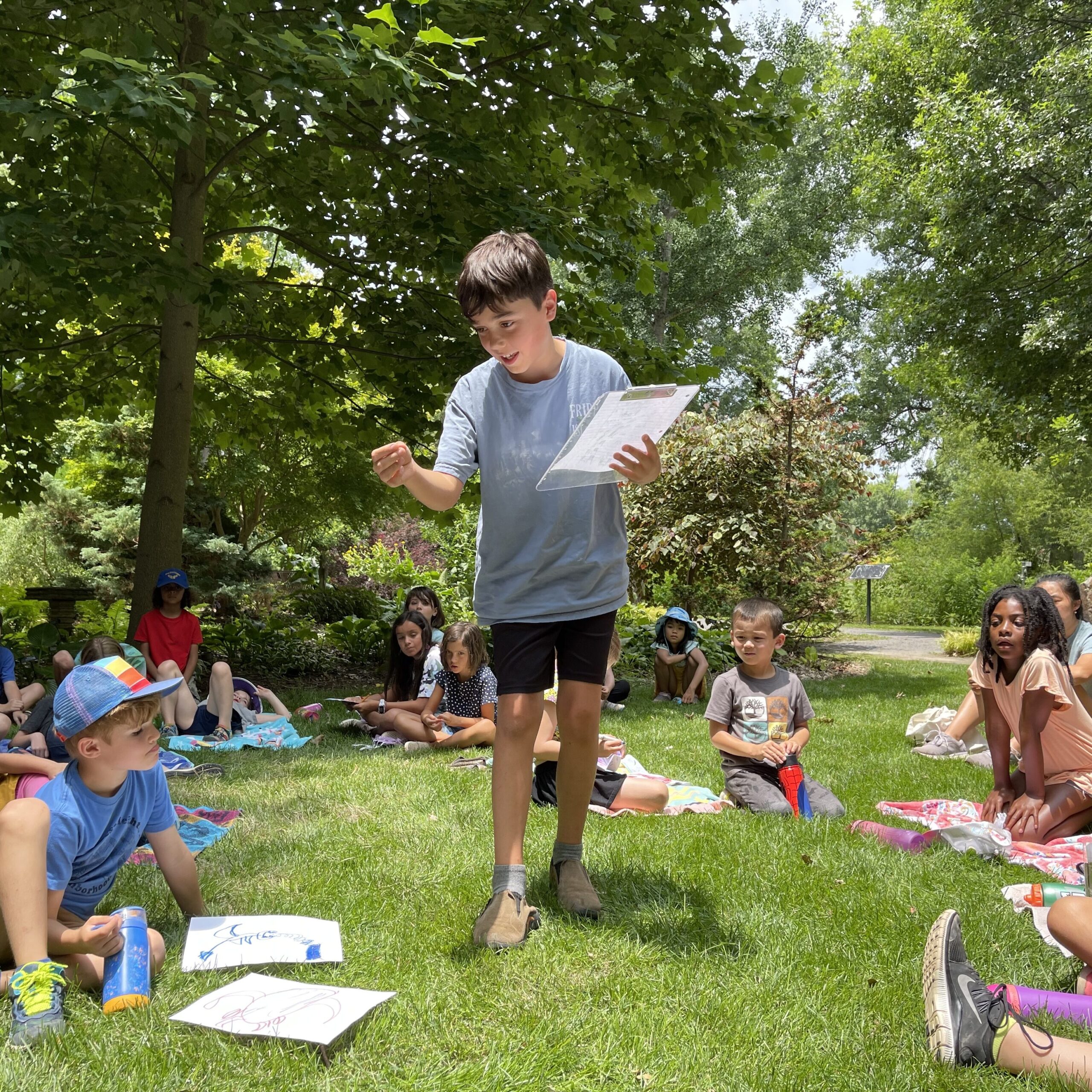
Positions at the UT Gardens
Unpaid Positions
- Unpaid Internship: Students may receive credit in Plant Sciences 492 Internship in Horticultural and Plant Science credit for supervised work experience in the UT Gardens in an unpaid position. Students must receive consent from their faculty advisor and be accepted by the UT Gardens as an intern BEFORE enrolling in the course. Students are responsible for all required documentation needed to receive credit. One to three credit hours are available based on the formula set forth by the departmental internship coordinator.
- Special Topics: Students may receive credit in the UT Gardens for Plant Sciences 493 Problems in Horticultural and Plant Sciences. Credit for this course typically revolves around a specific topic or project designed by the student and a faculty member. Students must receive consent from the faculty member, faculty advisor, and coordinate their project with the garden curator BEFORE enrolling in the course. Students are responsible for meeting all required benchmarks set by the coordinating faculty member.
- Service Learning: Students or student organizations may fulfill service learning project requirements in the UT Gardens. Students must receive consent of their instructor or the student organization faculty advisor and coordinate with garden curator BEFORE beginning a project. Any required documentation is the responsibility of the student or organization.
- Volunteer: Volunteers are an integral and valued part of the UT Gardens and the UT Gardens staff. Many opportunities are available for students who wish to donate their talents and time. From one-time special event needs to regularly scheduled garden maintenance activities, there is always room for volunteers. Students seeking to volunteer should contact the garden curator and the volunteer coordinator for registration in the volunteer program.
Paid Positions
- Student Assistant: Based on funds available, student assistants are hired through the Department of Plant Sciences and become employees of the University of Tennessee and are classified as a student assistant. Students desiring employment must complete and submit an Application for Employment for the UT Gardens to be considered.
- Federal Work Study: This federally administered need-based program of financial aid allows students to earn part of their educational expenses by working part time. Students who wish to participate in this program must first contact One Stop. Once accepted in the program, they then must be referred by the financial aid office to the UT Gardens to begin the hiring process. If accepted for employment they then follow the same policies as a student assistant except for minor administrative payroll processes.
- Paid Internship: Based on funds available, students may receive credit for Plant Sciences 492 Internship in Horticultural and Plant Science for paid supervised work experience in the UT Gardens. Students must receive approval from their faculty advisor and be accepted by the UT Gardens as a paid intern BEFORE enrolling in the course. Students are responsible for all required documentation needed to receive credit. One to three credit hours are available based on the formula set forth by the departmental internship coordinator.
- Graduate Assistants: Graduate assistants in public horticulture are often required to fulfill some of their assistantship obligations in the UT Gardens. These requirements are set up and monitored by their major professor. These activities are coordinated with the garden curator as the need arises.
Student Tasks
Students often inquire about positions available in the UT Gardens. Inevitably their next question is “Just exactly what do you do down there?” There are many activities that are required to operate and maintain a public garden of the caliber of the UT Gardens. Some can be mundane while others are exciting and creative—although all are vital to the successful operation of the Gardens. Tasks can change daily, however, and a wide range of activity can be expected. Students are encouraged to express any particular interest they may have. The following list contains some of the important tasks students perform as volunteers and employees.
- Horticulture Duties: Planting, watering, weed control, mulching, tilling, pest control, pruning, turf grass management, mowing, string-trimming, edging, soil monitoring
- Greenhouse Duties: Sowing seeds, transplanting, watering, fertilization, greenhouse maintenance, pest control.
- Planning: Ordering seed and plants, planning theme displays.
- Plant Records: Maintaining plant collection databases, labeling, plant evaluations.
- Landscape Design: Designing display beds, containers, and hardscape features.
- Landscape Construction and Maintenance: Installing and maintaining hardscape features and irrigation systems.
- Garden Interpretation: Writing brochures and interpretive signs, creating and maintaining bulletin boards.
- Outreach and Communication: Giving Gardens tours, writing newsletter articles, performing television and radio spots, leading workshops and educational programming for school groups and the public, developing and maintaining websites.
- Special Events: Participating and organizing plant sales, Dig and Divide, UT Gardens member events.
- Volunteer Management: Organizing and managing volunteer corps, leading volunteer work days, appreciation days, and special volunteer events.
Student Benefits
The benefits of working in the UT Gardens often serve as a great complement to student course work and generally enrich the college experience. A few are listed here.
- Gain valuable résumé building experience.
- Gain experience in equipment operation and maintenance.
- Gain experience in hands-on horticultural, greenhouse, and gardening practices.
- Increase knowledge of plant material.
- Build a network with experienced Master Gardeners.
- Develop interpersonal and management skills.
- Make contacts with green industry professionals.
- Develop public speaking and written communication skills.
- Make connections and building friendships with other students with similar interests.
- Work in a beautiful outdoor setting.
- Receive course credit.
- Earn money while attending college.
- Receive letters of reference and recommendations for scholarships, internships, and jobs.
- Work flexible hours.
- Gain assistance in defining career goals.
- Interface with University faculty and staff.
